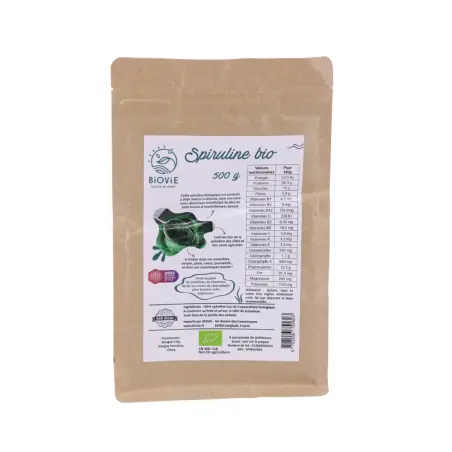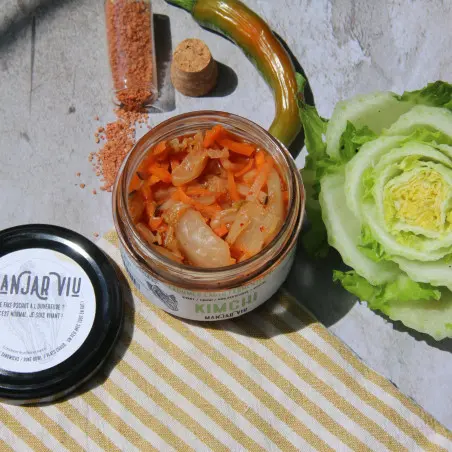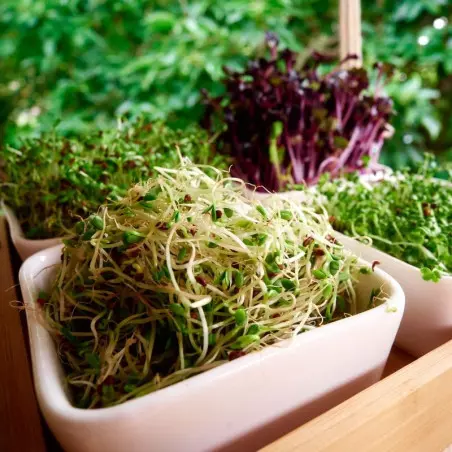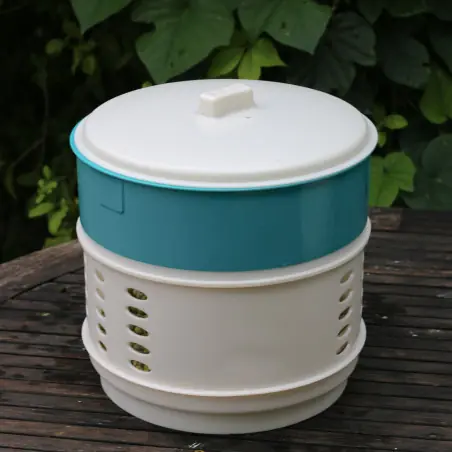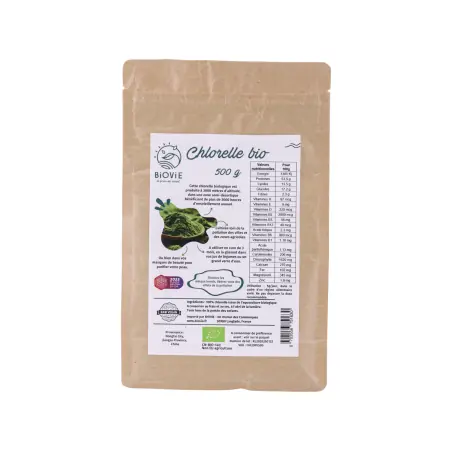Bioactive nutrition is a fascinating concept that is gaining popularity in the world of nutrition and health. It represents an innovative approach to our way of eating, emphasizing foods that "give and generate life". In this article, we will explore in depth what bioactive nutrition is, its fundamental principles, and how it can positively influence our health.
After reading this article, you will have:
- A clear understanding of what bioactive nutrition is,
- Knowledge about bioactive foods and their effects on health,
- Practical tips for integrating this approach into your daily life,
- A new perspective on your diet and its impact on your well-being.
Definition and Principles of Bioactive Nutrition
Bioactive nutrition is much more than just a trend; it is a dietary philosophy rooted in the relationship between nutrition and bodily vitality. This way of eating emphasizes ingredients that not only nourish but "give and generate life" through their natural and dynamic properties. At the heart of this approach is the idea that bioactive foods can stimulate the natural processes of regeneration and healing in our bodies, infusing vital energy that is often lacking in modern diets. Unlike conventional foods, which are often processed and lifeless, bioactive foods are fresh, raw, and contain measurable energy potential in bovis units, a scale that evaluates the vitality of foods.
The origin of bioactive nutrition dates back to ancestral traditions where people valued foods in their purest state for their ability to support the body and mind. Today, this approach is embraced by those seeking optimal health and a better connection with the cycles of nature. By incorporating foods such as sprouted seeds and algae, rich in enzymes and antioxidants, bioactive nutrition aims to enhance the self-healing potential and stimulate cellular regeneration, offering a natural path to physical and mental balance.
Biogenic Foods: At the Heart of Bioactive Nutrition
Biogenic foods are key elements of bioactive nutrition. This term primarily encompasses raw foods that are still growing or sprouting, such as:
- Sprouted Seeds: True nutrient powerhouses, they increase their content of enzymes, vitamins, amino acids, and essential minerals during the germination process. As an exceptional plant source, they play a crucial role in cellular regeneration and the body's self-healing potential by providing antioxidants and bovis units, a measure of the vital energy of foods.
- Algae: Excellent source of proteins, minerals, and antioxidants, algae like spirulina and chlorella are prized for their nutritional density. Among their many beneficial effects, they detoxify the body and strengthen the immune system.
Benefits of Biogenic Foods
- Cellular Regeneration: The enzymes and vitamins present in sprouted seeds promote cellular regeneration.
- Self-Healing Potential: Antioxidants help strengthen the body's self-healing potential.
- Vital Energy: Bovis units measure the vital energy of foods, contributing to renewed vitality.
Positive Environmental Impact
By adopting biogenic foods, you are not only making a choice for your personal health but also supporting sustainable and environmentally friendly agricultural practices. These foods represent a holistic approach, combining balanced and healthy eating with respect for the planet.
To deepen your understanding, scientific studies on the benefits of sprouted seeds and algae can be consulted. These studies demonstrate the positive impact of these foods on health and overall well-being.
The Self-Healing Potential: A Key Principle
Bioactive nutrition is based on the fascinating idea that our body possesses an intrinsic self-healing potential, which bioactive foods can stimulate and strengthen. This mode of nutrition favors ingredients naturally rich in nutrients, capable of giving and generating life, by activating the natural processes of regeneration and repair in our body.
Bioactive foods, such as sprouted seeds and algae, are at the heart of this approach. They are alive, full of vital energy, and abound with properties that promote vitality. The enzymes and antioxidants they contain play a crucial role in cellular protection and regeneration, thus contributing to the overall health of the body.
Directly linked to the concept of food vitality, these foods increase energy measurable in bovis units, meaning they provide a vitality that processed foods cannot offer. This vitality is essential to support bodily functions and enhance the body's self-healing potential. By adopting a bioactive diet, one can thus hope for an improvement in overall health, better resistance to daily stress, and valuable support for the immune system.
For those looking to integrate these principles into their daily lives, it is advisable to start with simple yet powerful ingredients like seeds for sprouting, which are easy to grow at home and include in various culinary preparations. These initial steps can gradually transform your diet and open you up to new dimensions of health and well-being.
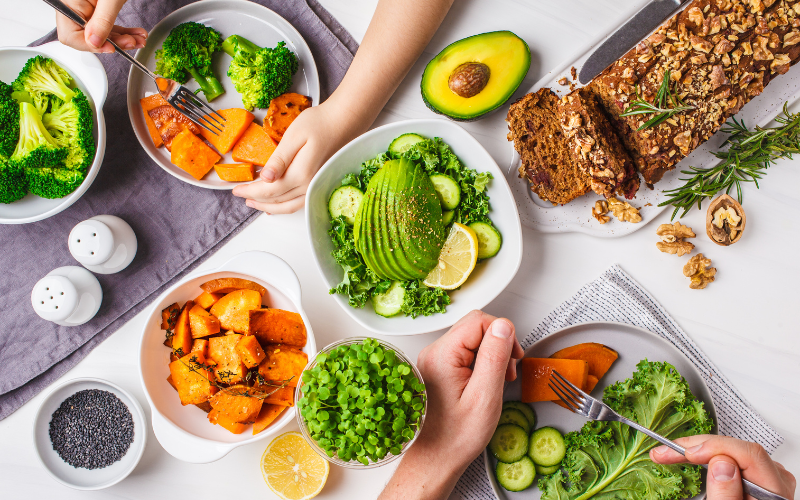
The essential components of a bioactive diet
Adopting a bioactive diet means embracing a nutritional approach rich in vital elements for our health. At the heart of this healthy eating approach are specific nutrients that play a central role in our well-being, notably enzymes and antioxidants. These components, abundantly present in living and unprocessed foods, are essential for supporting bodily vitality and promoting natural healing and regeneration processes.
Enzymes: Catalysts of life
Enzymes are essential proteins that play a fundamental role in our body by accelerating the biochemical reactions necessary for life. They act as catalysts, enabling vital processes such as digestion, energy production, and cellular repair. In the context of a bioactive diet, enzymes are particularly valued for their ability to optimize nutrient absorption and facilitate the breakdown of food.
A diet rich in enzymes can significantly improve our well-being by easing the digestive work of our body and releasing energy that can be directed towards other bodily functions. Among the food sources rich in enzymes, sprouted seeds stand out. These little wonders of nature, thanks to the germination process, multiply their enzyme content, thus enhancing their nutritional potential. Other bioactive foods such as fruits and raw vegetables and certain fermented vegetables, such as kimchi and sauerkraut, are also excellent sources of natural enzymes.
By incorporating these foods into our daily diet, we can not only improve our digestion but also increase our overall vitality. Adopting a lifestyle focused on bioactive nutrition is a beneficial approach to health. For those who wish to start their journey into bioactive nutrition, regularly consuming foods rich in enzymes is an excellent starting point, bringing with them better digestive health and renewed energy.
Antioxidants: Cellular Protectors
Antioxidants play a crucial role in defending our body against oxidative stress, a condition caused by an imbalance between free radicals and antioxidants in the body. This oxidative stress is a key factor in premature aging and many chronic diseases. By including bioactive foods rich in antioxidants in our diet, we can strengthen our natural defense system and improve our overall health.
Bioactive foods, such as sprouted seeds and certain algae, contain active compounds with powerful antioxidant properties. For example, spirulina and chlorella contain powerful antioxidants like phycocyanin, which helps neutralize free radicals. Additionally, raw fruits and vegetables, notably berries like açaí and leafy vegetables, are also rich in vitamins C and E, beta-carotene, and polyphenols, all recognized for their exceptional antioxidant effects.
By integrating these bioactive substances into our daily diet, we can not only protect our cells from damage but also stimulate our cellular regeneration and self-healing potential. Regular consumption of these bioactive foods is an effective strategy to maintain optimal well-being, prevent age-related diseases, and reduce the risk of heart disease. Adopting this dietary approach is choosing a natural and preventive path for sustainable health and a body vibrant with vitality.
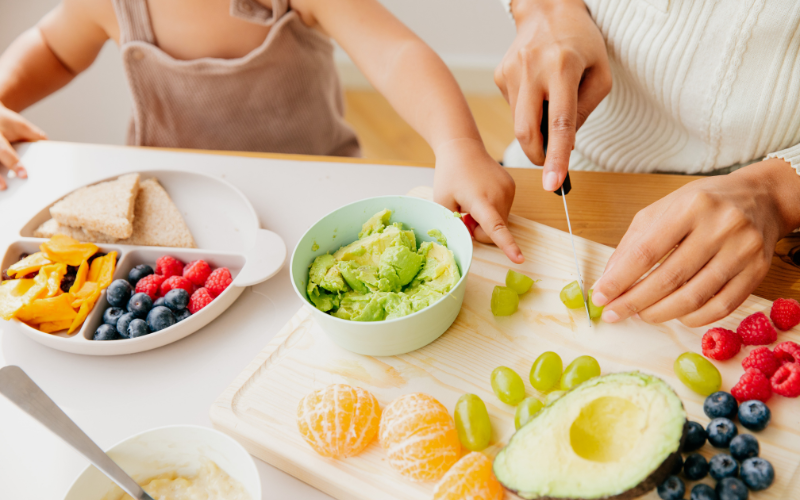
Benefits of Bioactive Nutrition on Health
Bioactive nutrition is much more than just a food trend; it represents a holistic approach aimed at optimally nourishing the body. Incorporating bioactive foods into your daily life will have significant effects on your health, thanks to their unique and beneficial properties. Their regular consumption can not only support your daily well-being but also promote lasting vitality.
Cellular Regeneration and Longevity
Bioactive nutrition plays an essential role in cellular regeneration, a crucial process for maintaining the youth and vitality of our body. This cellular regeneration process is vital for repairing damaged tissues, producing new cells, and slowing down aging.
Enzymes, abundantly present in raw foods, facilitate metabolic processes that are essential for cell division and growth. As for antioxidants, they protect cells from oxidative damage caused by free radicals, thus reducing signs of aging and preventing certain chronic diseases such as inflammatory diseases and cardiovascular diseases. A study published in the Journal of Clinical Biochemistry and Nutrition showed that increasing antioxidant intake could extend lifespan and improve overall health by reducing oxidative stress.
By incorporating bioactive foods into your daily diet, you can not only strengthen your cells but also improve your longevity. These foods act directly on the human body, supporting its vital functions and protecting it from external aggressions. Adopting new eating habits centered on these foods is an effective approach to keeping your body in full health. This not only offers you a younger appearance but also a better quality of life. For those who aspire to lasting well-being, adopting a bioactive diet is a proven strategy to nourish and protect the body from within.
Strengthening the Immune System
Bioactive nutrition plays a crucial role in strengthening our immune system by providing exceptional nutritional intake of essential nutrients. These foods, such as sprouted seeds and algae, are true nutritional treasures that provide vital energy and the elements necessary to boost our natural defenses.
Sprouted seeds, for example, are packed with vitamins, minerals, and enzymes that help strengthen the immune system. They are particularly rich in vitamin C and zinc, two key nutrients to support the optimal functioning of our immune defense. Moreover, their high antioxidant content helps protect the body against free radicals, reducing oxidative stress and preventing inflammation.
Algae, such as spirulina and chlorella, are also excellent sources of immune-boosting nutrients. They contain a large amount of proteins, iron, and B vitamins, contributing to increased production of immune cells. Spirulina, in particular, is known for its antiviral and antibacterial properties, thus enhancing our resistance to infections.
Adopting a bioactive diet, by regularly incorporating these foods, can therefore play a preventive and protective role against the onset of diseases. By strengthening your immune system, you support not only your daily health but also your ability to face external aggressions. This dietary approach constitutes an effective preventive strategy to maintain a healthy body and lasting vitality.
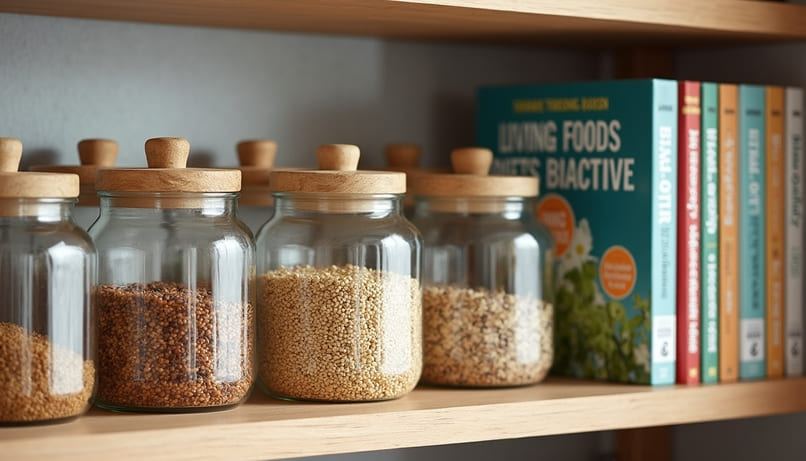
How to Integrate Bioactive Nutrition into Daily Life
Adopting a bioactive diet may seem complex at first, but with a few simple adjustments, you can transform your eating routine to fully enjoy the benefits of this approach. Bioactive foods are rich in nutrients, easy to integrate, and can be prepared in a multitude of delicious ways. Here are some practical tips to help you incorporate these living foods into your daily life.
Start with Sprouted Seeds
Integrating sprouted seeds into your daily diet is an ideal gateway to a bioactive diet. These nutrient-rich plant foods are easy to grow at home and are packed with essential vitamins, minerals, and enzymes. Moreover, they are incredibly versatile and can be added to a variety of dishes, making your diet not only more nutritious but also exciting.
Simple Guide to Sprouting Your Own Seeds
- Choose Your Seeds: Opt for certified organic seeds, such as those of alfalfa, lentils, or radish, which are perfect for beginners.
- Soaking: Soak your seeds in clean water for 8 to 12 hours. This process awakens the seeds by starting the germination.
- Rinsing and Draining: After soaking, rinse the seeds well and drain them. Repeat this process twice a day to keep the seeds moist but not soaked.
- Germination: Place the seeds in a sprouter or a jar, away from direct sunlight. In a few days, you will see the sprouts appear.
- Harvesting: Once the sprouts are about 2 to 5 cm long, they are ready to be consumed. Rinse them one last time before adding them to your dishes.
Ideas for incorporating sprouts into your meals
- Salads: Add them to your salads for a crunchy texture and increased nutritional value.
- Sandwiches: Use them as a fresh and crunchy topping in your sandwiches or wraps.
- Smoothies: Blend them into your smoothies for an extra boost of vitamins and enzymes.
By incorporating sprouts into your daily meals, you will take a step towards a richer and more vibrant plant-based diet, while discovering the revitalizing benefits of this bioactive practice.
Explore the world of seaweeds
Edible seaweeds are true nutritional treasures, rich in essential nutrients that can transform your bioactive diet. They are not only delicious but also incredibly beneficial for health. Considered superfoods, seaweeds like spirulina, chlorella, nori, and wakame are valuable additions to a bioactive diet.
Spirulina and Chlorella: These microalgae are particularly prized for their high content of complete proteins, iron, B vitamins, and antioxidants. They detoxify the body, support the immune system, and promote cell regeneration. To easily integrate them into your diet, you can add a few teaspoons of spirulina or chlorella powder to your smoothies or fruit juices. They not only add a beautiful green color but also a concentrated dose of nutrients.
Nori and Wakame: These seaweeds, often used in Japanese cuisine, are rich in iodine, calcium, and magnesium, contributing to thyroid and bone health. Nori, often used for sushi rolls, can be cut into thin strips and added to salads or soups for a crunchy and iodine-rich touch. Wakame, on the other hand, is ideal for soups and salads due to its silky texture and subtle taste.
Seaweeds not only add flavor to your dishes, but they also increase the vital energy of foods, measured in bovis units. By incorporating them regularly into your meals, you can not only diversify your diet but also maximize your intake of essential nutrients, thereby enhancing your overall health. For a gentle start, try new simple recipes like a sesame wakame salad or a spirulina green smoothie, and be surprised by their benefits.
Training with Professionals
Nowadays, we are fortunate to have access to multiple workshops, webinars, and training sessions, either remotely or in person, some even offering certifications for those wishing to make it their profession.
In our store (in addition to our various recipe books), you will find a multitude of online courses dedicated to living food, according to your needs and goals, such as:
> The Encyclopedia of Raw and Plant-Based Culinary Arts, designed and guided by Marie Sophie L, ideal for beginners as well as enthusiasts and professionals wishing to deepen their culinary skills in living food.
> as well as the courses from the Living Light Institute, perfect for exploring living food, through three levels of learning: Basics, Fundamentals, and Essentials of Culinary Arts. Led by Cherie Soria, a pioneer in raw cuisine, she will guide you in creating healthy and varied dishes through healthy, creative, and adaptable preparation techniques for everyone.
Conclusion
Embracing bioactive nutrition means choosing a nutritional approach that celebrates the vitality and natural regeneration of the human body. By incorporating biogenic foods such as sprouted seeds and algae, you enrich your diet with enzymes, antioxidants, and essential nutrients that support your self-healing potential and strengthen your natural defenses. These living foods, measurable in bovis units, provide vital energy that transcends what processed foods can offer, while contributing to a sustainable diet to preserve both your health and the environment.
To begin your journey towards bioactive nutrition, you can gradually incorporate these foods into your daily meals. Whether through the simplicity of sprouted seeds in a crunchy salad or the nutritional richness of a spirulina smoothie, every small step counts. This health nutrition approach not only nourishes your body but also plays a key role in disease prevention, strengthening your immune system, and reducing the risks of chronic disorders. By choosing to nourish your body with these powerful ingredients, you open the door to a healthier and more balanced life.
Feel free to explore this approach further by subscribing to our newsletter and reliable resources, and by joining communities that share the same values of well-being and conscious nutrition. Together, you can discover new ways to live in harmony with your body and the environment, for sustainable health and renewed vitality.
Your Questions and Our Answers (FAQ)
What is bioactive nutrition and why is it important for health?
Bioactive nutrition is a nutritional approach that focuses on foods that "give and generate life" through their natural properties. These foods, such as sprouted seeds and algae, are rich in enzymes and antioxidants that promote cellular regeneration and the body's self-healing potential. Adopting bioactive nutrition can enhance vitality, strengthen the immune system, and contribute to sustainable well-being.
What are biogenic foods and how can they be integrated into one's daily diet?
Biogenic foods primarily include raw foods in growth or germination, such as sprouted seeds and certain algae. To integrate them daily, start by adding sprouted seeds to your salads or sandwiches and use algae like spirulina in your smoothies. These simple steps can enrich your diet with essential nutrients.
How do sprouted seeds contribute to cellular regeneration?
Sprouted seeds are rich in enzymes and antioxidants that facilitate cellular regeneration. They increase their nutrient content during the germination process, helping to repair damaged tissues and protect cells from free radical attacks. This unique property makes sprouted seeds a key element for a bioactive diet.
What is the role of antioxidants in a bioactive diet?
Antioxidants present in bioactive foods, such as certain algae and sprouted seeds, protect cells against oxidative stress caused by free radicals. They play a crucial role in preventing premature aging and chronic diseases, thus contributing to better overall health and increased longevity.
Why is it important to measure the vital energy of foods in bovis units in a bioactive diet?
Bovis units measure the vital energy or vibrational frequency of foods. In a bioactive diet, the goal is to consume foods with high vitality, capable of revitalizing the body and enhancing its natural healing abilities. The higher the vital energy, the more beneficial the foods are considered for health.
How does a bioactive diet strengthen the immune system?
A bioactive diet strengthens the immune system through its richness in vitamins, minerals, and enzymes present in foods like sprouted seeds and algae. These nutrients increase the production of immune cells, improve resistance to infections, and support the body against external aggressions.



